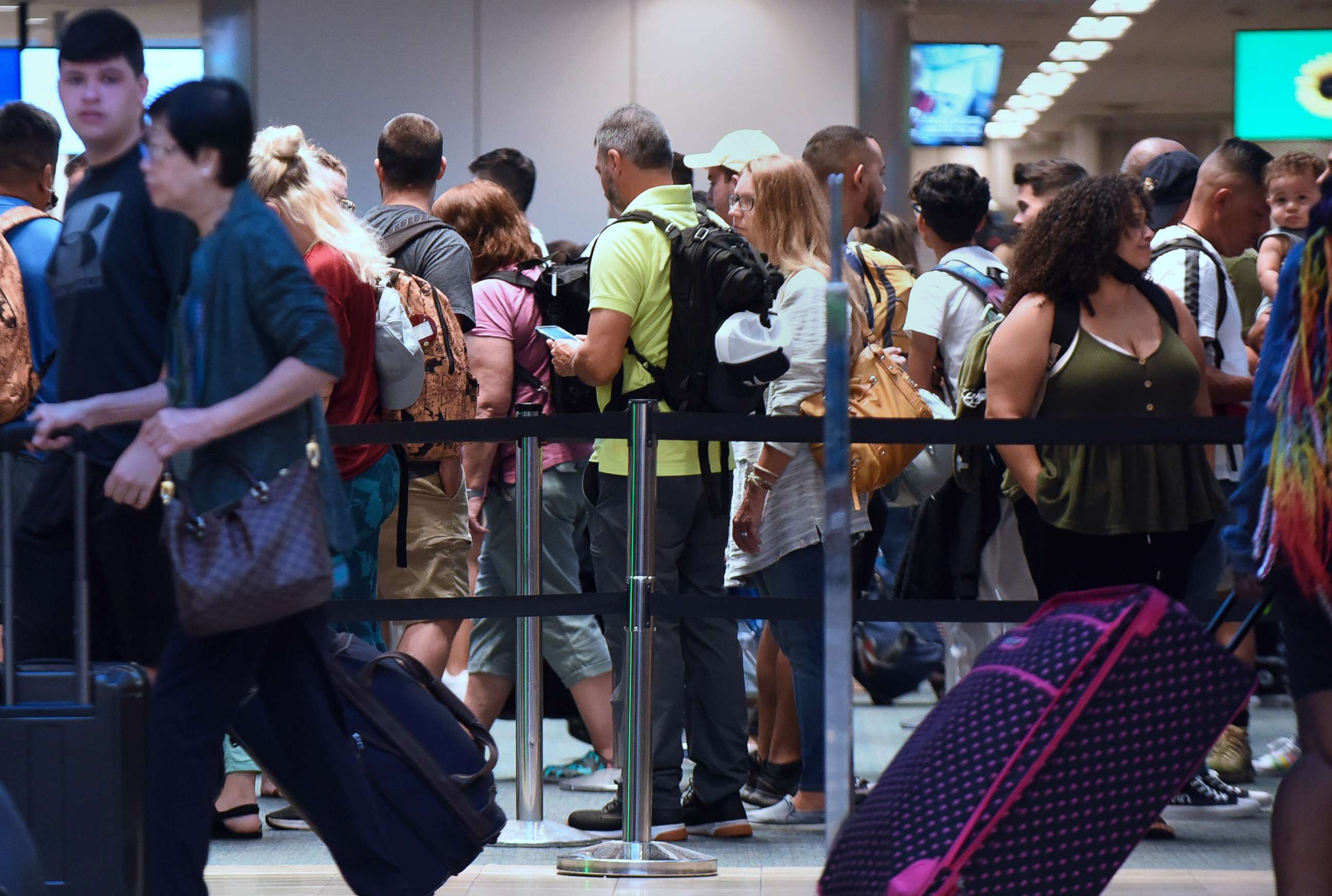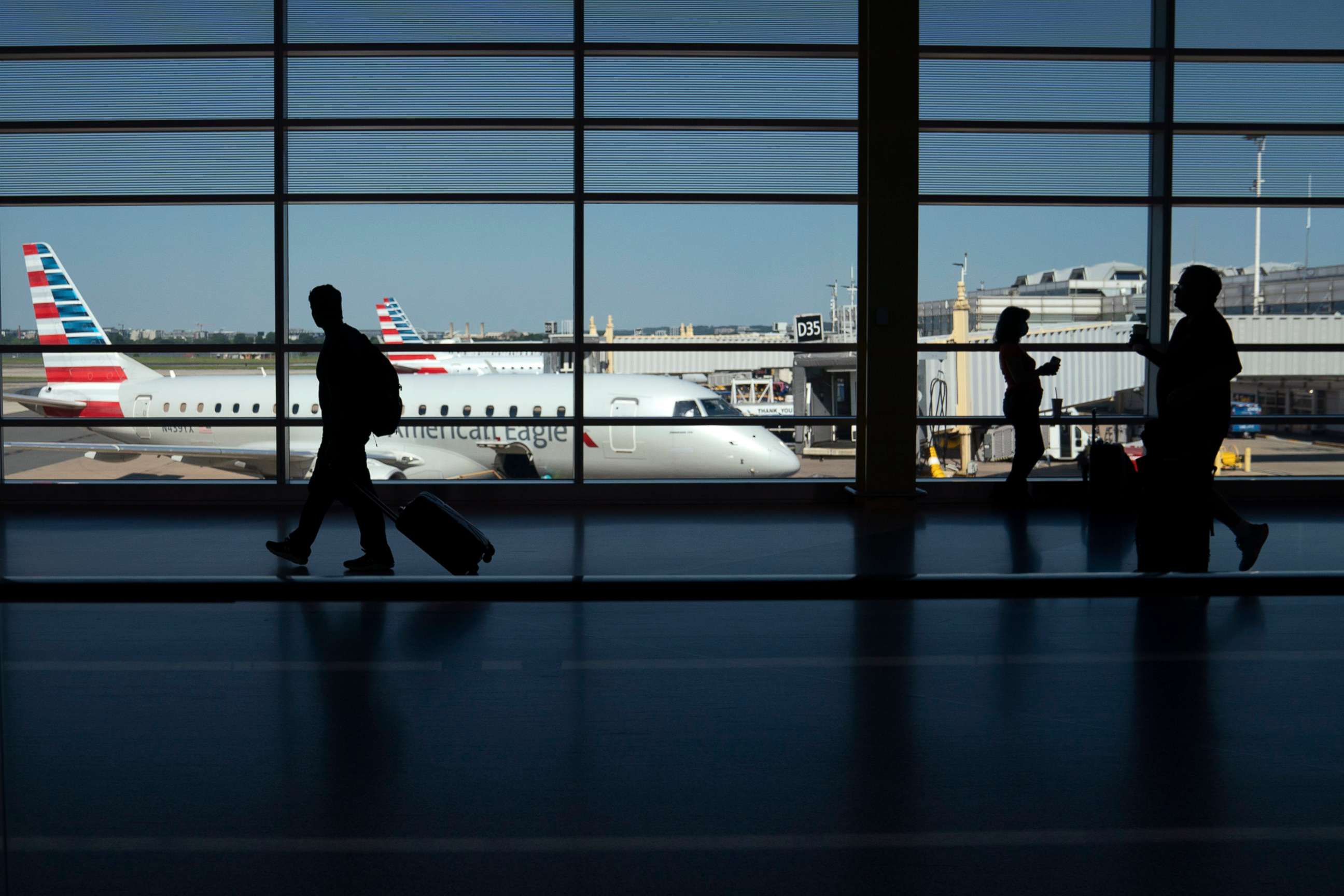Fall flight cuts reflect new normal for passengers
Experts say industry is adapting to pilot shortages, new demand.
As airlines announce cutting hundreds of flights a day in the fall, industry experts warn ABC News that this situation will become the new normal as air travel demand recovers from the pandemic and deals with a piloting shortage.
But they also cautioned that the airlines may not leave people stranded as they quickly adapt their operations to accommodate for these conditions.
The major airlines have scheduled 574,489 departures in October and 555,515 in November, according to recent data from Airline Data Inc. This is a far cry from the 677,882 departures in October 2019 and 639,248 in November 2019, according to the data.
"These large volume cuts are new. They haven't occurred in the previous several years," Jeff Pelletier, the managing director for Airline Data Inc., told ABC News Monday.

Despite the cuts, which Pelletier said haven't been seen since after Sept. 11, he and other industry watchers say the airlines will be working nonstop to ensure that passengers aren't stranded.
"These cuts are, right now, placeholders," Brett Snyder, the president of Cranky Concierge travel assistance, told ABC News. "Typically, airlines plan out their flights about 100 days out, but those can change based on demand and other factors."
Still, he said the situation should push the industry to rethink the way it plans out its future flights.
The cuts to flights for both October and November vary from airline to airline, according to data.

American Airlines, Delta Air Lines, and United Airlines saw the biggest decreases in planned departing flights from October 2019 to October 2022, according to Airline Data Inc. The three airlines combined have roughly 95,000 fewer flights in October compared to the same period in 2019 the data showed.
American, Delta and United plan to fly, combined, 79,000 fewer flights in November compared to November 2019, the data showed.

American Airlines said in a statement Monday that its planned October and November departure cuts are in line with its operating procedures prior to the pandemic. American Airlines CEO Robert Isom told investors in July that the airline expects its full-year capacity to be down approximately 7.5% to 9.5% versus 2019.
"We're sizing the airline for the resources we've available and the operating conditions we face, and we'll make other changes as needed. Even with these adjustments, American still offers customers the largest network of any U.S. airline with an average of more than 5,400 daily departures," Isom told investors in July.
Pelletier said it will be several years before new pilots can be hired and brought online so, in the meantime, the airlines are adapting in the most efficient way possible. The carriers are using "up to date booking curves" to allocate their aircraft to destinations with more bookings while also lowering the number of flights to destinations that haven't been popular around this time of the year.
"They're using that time, that opportunity to say, 'You know what? Let's remove an aircraft where there's lower bookings. Let's put it where the passengers really want to go that way,'" he said.
"This is going to be the new norm, I believe, for at least the next couple of years," he added.
Snyder also noted that the fall typically sees a decrease in planned flights in October and November, even before the pandemic, and these new numbers reflect the fact that the industry is still recovering.
He added that passengers looking to book a flight during those two months shouldn't worry because airlines have, in the past, added extra flights closer to departure based on demand and timing.
"I would bet we would see more flights added around Thanksgiving," he said.
On Thursday, U.S. Transportation Secretary Pete Buttigieg wrote a letter to carriers, calling on them to improve their customer service. He warned airlines that new rules may be coming to better empower travelers who face flight disruptions within the airlines' control.
Roughly 24% of domestic flights of U.S. airlines have been delayed and 3.2% have been canceled during the first six months of this year, according to the U.S. Department of Transportation.
"Americans expect when they purchase an airline ticket they will arrive at their destination safely, reliably and affordably," Buttigieg wrote.
Airlines for America, or A4A, the group that lobbies on behalf of all major U.S. airlines, responded to the letter and said its members are "committed" to working with stakeholders to overcome these challenges.
Carriers noted that increased demand and staffing issues were factors behind the disruptions. A4A also cited data that indicated 63% of the cancellations for the first five months of 2022 were caused by weather and the National Airspace System (NAS) collectively.
Pelletier said anyone who purchased a ticket for a flight in October or November should check with their airline to make sure there weren't any last second scheduling changes. For passengers who haven't booked their flight, he warned that they should be prepared for timing issues but reiterated that they would be able to make their destination.

"Maybe you need to travel a day before, [or] a day after," he said. "At this point, everybody needs to be flexible, both the airlines and as they try to accommodate as many passengers as they can and the traveling public in order to get from point A to point B. They'll get there."
Snyder agreed that the airlines do not want to lose the revenue or their customers' trust as they continue to rebound from the pandemic and will do everything they can to accommodate their request. He added that the situation should prompt the carriers to come up with a new system where they schedule their flights more accurately in advance to avoid any more problems that can occur from outside factors.
"They need to create a better placeholder, but that's been hard because demand has been so variable since the pandemic," he said.
ABC News' Sam Sweeney and Barbara Friedman contributed to this report.



